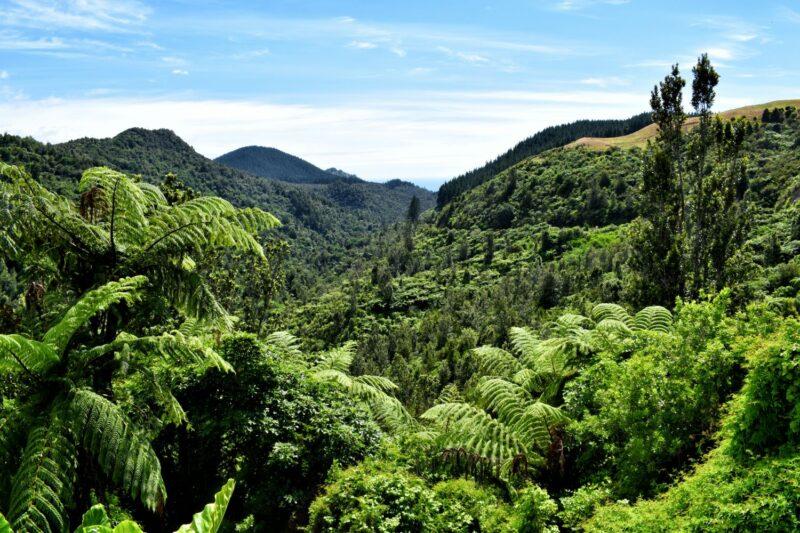Nature is in the business news
From: August issue NZ Manufacturer www.nzmanufacturer.co.nz
With good reason. In the next few years, New Zealand manufacturers can expect to be called on to answer these two questions. How is your business reducing your impacts on nature? How will changes to nature affect your business?
Who’ll be asking these questions? Governments, regulators and financiers like lenders. They’re realising that centuries of degrading nature (the ecosystems that make up land, oceans, freshwater and the atmosphere) is not only depleting biodiversity. It’s having financial and economic impacts on businesses too.
These parties are adding weight to environmentalists’ calls for urgent change. In this article we explain what this means for manufacturers in Aotearoa New Zealand.
The need for change
The World Economic Forum’s 2024 Global Risks Report ranks dwindling biodiversity and collapsing ecosystems among the five most severe risks to business in the next ten years.
The UK Green Finance Institute’s recent report makes sobering reading. It identifies and measures the country’s nature-related risks.
The report confirms that these risks are as harmful as the risks of climate change, and that nature and climate are linked. Zoonotic diseases, declining soil health, slips, floods, food insecurity and lost production will affect all sectors – including manufacturing. The economic impacts could be worse than the Global Financial Crisis or Covid-19.
The report concludes that the UK must transition its economy urgently to valuing and investing in the environment. As 50 percent of the country’s risks come from overseas (including New Zealand), UK regulators and financial institutions will require businesses to scrutinise their supply chains. We expect other trading partners, including the EU, to take a similar stance.

Nature Positive, the global goal for nature
The world has agreed a biodiversity equivalent for the global goal that limits global warming. Nature Positive is made up of three goals that result in full recovery of nature by 2050. The Kunming-Montreal Global Biodiversity Framework, adopted by 196 countries including New Zealand, supports these goals.
What does this mean for New Zealand manufacturers?
New Zealand manufacturers rely heavily on nature. Food and beverage manufacturing accounts for around 32% of our GDP; forestry and wood products contribute a further 9%. All sectors need stable land, a safe and healthy workforce, reliable supply chains and buoyant markets to be productive and profitable.
We can learn from Mātauranga Māori. The Māori relationship with the land is about kinship. Mātauranga Māori values respect and honour nature. All aspects of nature, including people, are intertwined and connected through whakapapa.
Get ready for changes
Some changes will be ‘transitional’. Markets, products and laws will change as our economy and our trading partners’ move to be more nature-positive.
For example, regulations and taxes on our exports will become more stringent. Central banks and financial institutions will expect companies to explain how they are managing the risks they face. Companies may diversify their suppliers to reduce supply chain risks.
Other changes will be physical. For example, continuing deforestation may cause land to erode. Severe weather, and our human compulsion to pave natural surfaces, may cause flooding. Flooding may destroy buildings. Secondary impacts may affect the property market, insurance premiums and mental health.
How to get started
- Understand the changes ahead
Research what changing global regulations and nature-related disclosures mean to your business.
- Understand the benefits for your business
This is an opportunity to reduce your risks and make your business more resilient. There’s also potential to build relationships and be known as a business that ‘takes nature seriously’.
- Identify your business’s relationships with nature
Map the activities involved in creating, producing, delivering, using and disposing of your products. Identify activities where your business affects nature in material ways and vice versa.
Look for risks and opportunities. How do you manage runoff into soil (an impact on nature)? How secure is your supply of natural resources (e.g. crops, an impact that nature has on your business)? Could you become known as a manufacturer who is ‘doing your bit’ for nature (an opportunity)?
- Make a plan
You are probably managing your relationship with nature already. For example, you may be using Forest Stewardship Council (FSC®) timber or supporting local wetlands.
Build these activities into your plan and expand on them. Consider redesigning your product to reduce the natural resources you use. Redirect run-off away from soil. If you use agricultural materials, ask suppliers to find an alternative to pesticides. Set goals and collect data.
- Strengthen your governance
Make sure nature features in your policies and is on the agenda at management and Board meetings.
- Communicate – and act
Share what you’re doing to enlist others’ support. Talk with your suppliers, team and customers. Make sure they understand that improving your relationship with nature is a priority. You’ll make fastest progress together.



